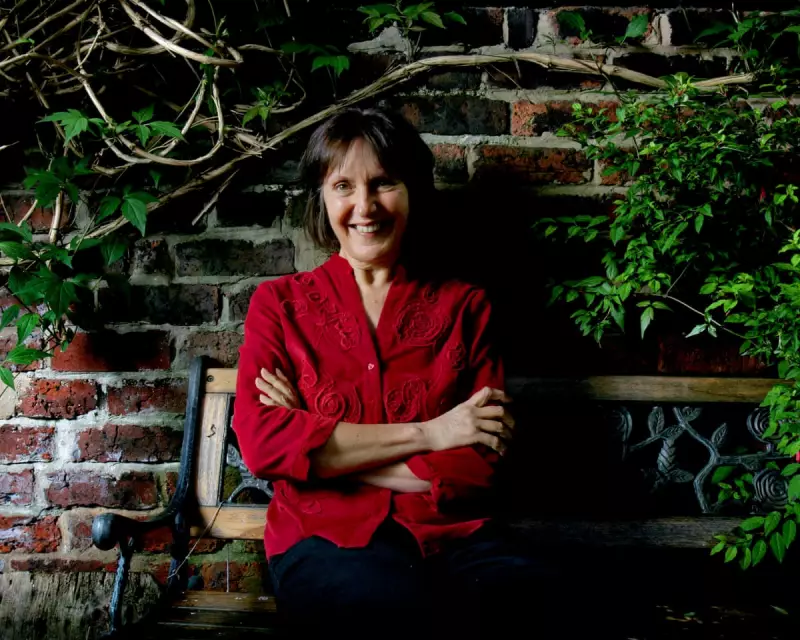
From Refugee Camp to Bestselling Author: The Remarkable Journey of Marina Lewycka
Marina Lewycka, the award-winning British-Ukrainian novelist who found literary fame in her late 50s with the million-copy bestselling debut A Short History of Tractors in Ukrainian, has died at the age of 79 from a degenerative brain condition.
A Life Forged in Displacement and Discovery
Lewycka's own life story read like one of her novels, beginning in extraordinary circumstances. She was born in 1946 in a British-run displaced persons camp in Kiel, Germany, to Ukrainian parents who had been forced labourers under the Third Reich. Her father, Peter, was an engineer and inventor, while her mother, Halyna, was a trained veterinarian.
Through what she described as "accidents of birth", her family qualified to come to Britain, initially living in what she recalled as "idyllic" East Sussex with Rosalind Dobbs, sister of social reformer Beatrice Webb. The family later moved to Oxfordshire and eventually settled in South Yorkshire.
This experience of displacement profoundly shaped her worldview. She never lost what she called her "curious outsider's eye" or sense of being "a bit of human flotsam washed up on a faraway shore".
The Making of a Writer: Education and Early Career
At school in South Yorkshire, she "badly wanted to be an English girl" but spoke Ukrainian at home with her parents. This bilingual upbringing, she recalled, taught her to "listen carefully" - a skill that would later inform her distinctive narrative voice.
Her father's work for the International Harvester tractor company in Doncaster would eventually provide the inspiration and technical knowledge for her breakthrough novel. After attending grammar schools in Lincolnshire and Oxfordshire, she studied English and philosophy at Keele University, followed by a BPhil at York and beginning a doctorate at King's College London on radical writings from the English civil wars.
Her academic pursuits were interrupted by present-day activism - she had joined CND as a teenager - and she embarked on a teaching career in adult education, including roles with the Open University and as a supply teacher. In 1975, she met New Zealand-born mining safety expert and trade unionist Dave Feickert, with whom she had a daughter, Sonia, before marrying in New Zealand in 1987.
Late-Blooming Literary Success
For years, Lewycka balanced teaching journalism and public relations at Sheffield Hallam University with writing, accumulating 36 carefully preserved rejection slips for unpublished fiction that was more modernist and philosophical than her later work.
Her fortunes changed when she enrolled in a creative writing MA at Sheffield Hallam University, counted as staff development. Encouraged by teachers including poet Sean O'Brien and novelist Jane Rogers, she wrote what would become A Short History of Tractors in Ukrainian.
The novel's comic tale of an octogenarian engineer who falls for a much younger Ukrainian woman after his wife's death drew on aspects of Lewycka family history. She had initially planned a memoir, conducting taped interviews with her mother, but soon realised "I was going to have to make stuff up" - which she did, uproariously.
Literary agent Bill Hamilton, serving as external examiner for her course, secured a deal with Penguin that led to what she described as an "almost overnight transformation" from unpublished author to literary sensation.
Legacy of Laughter and Humanity
The novel won the Bollinger Everyman Wodehouse award for comic fiction and was shortlisted for the Orange prize, eventually being translated into around 30 languages. Though some Ukrainians in Ukraine objected to what they viewed as stereotypes, the book's warmth and humour concealed deeper themes of grief, pain and division between generations.
Lewycka developed her fiction into what became a comic unofficial history of postwar Britain, seen from its margins. Subsequent novels including Two Caravans (2007) and We Are All Made of Glue (2009) continued her mission to reveal "hidden worlds" of global upheaval behind everyday multicultural Britain.
Her final novel, The Good, the Bad and the Little Bit Stupid (2020), tackled Brexit with her characteristic defiant warmth and high spirits in the face of calamity. Like Zadie Smith or Hanif Kureishi, her work celebrated the rival voices of a fast-changing nation, resolving conflicts into uplifting comedy.
In later years, Lewycka developed multiple system atrophy, a rare neurological condition that affected her speech, balance and movement. She wrote that having a degenerative disease was "scary, lonely and socially unacceptable", but found that "people's spontaneous kindness often brings tears to my eyes".
She is survived by her partner, historian Donald Sassoon, and her daughter, Sonia, who became an epidemiologist. Lewycka's unique literary voice, which converted the memory of trauma into exuberant fiction that championed our essential humanity, leaves an enduring legacy in British literature.





